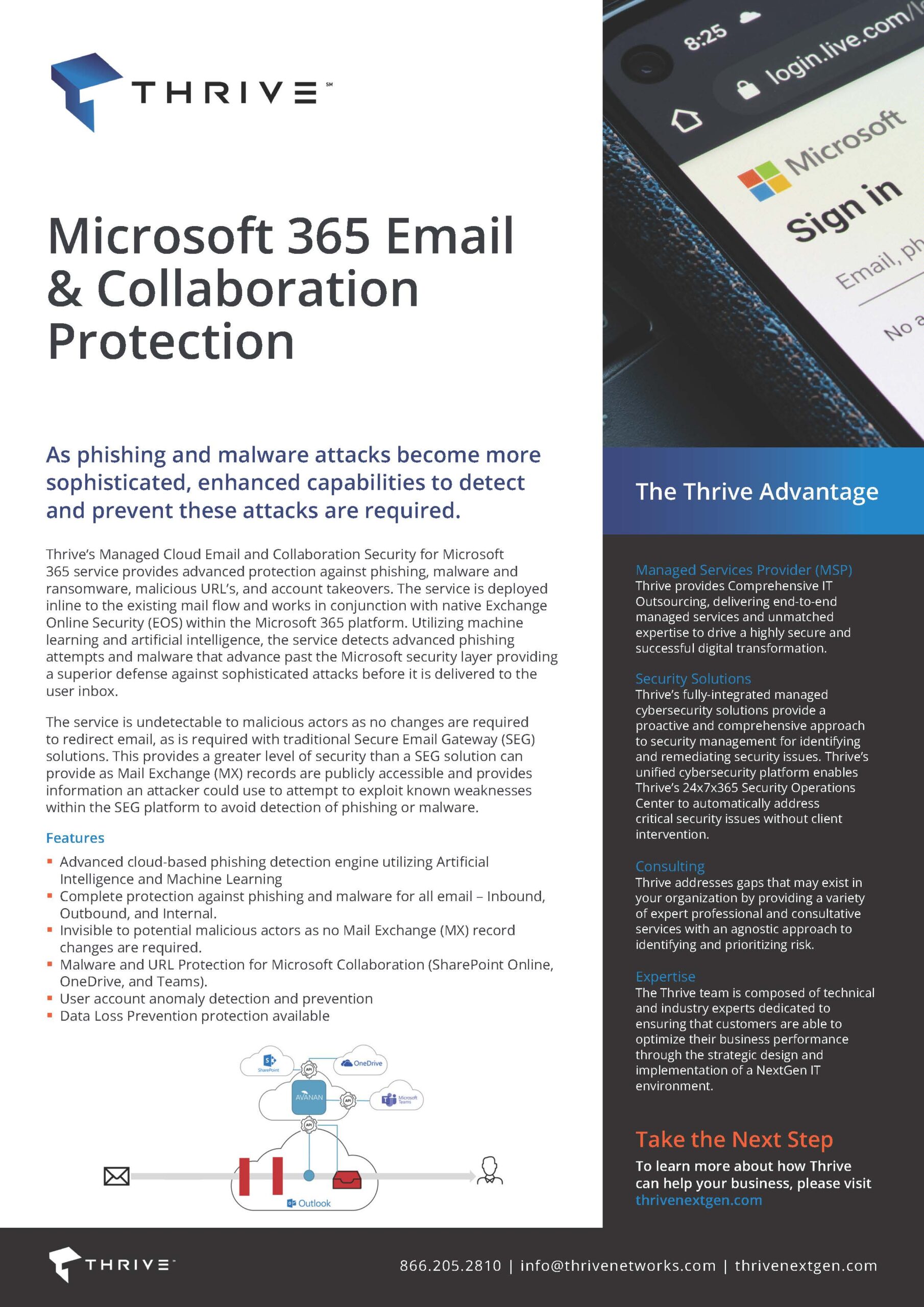U.S. Cybersecurity Compliance
Why Compliance Matters for U.S. Businesses
- Protecting Sensitive Data
- Avoiding Legal and Financial Penalties
- Building Customer Trust and Competitive Advantage
- Adapting to an Evolving Regulatory Landscape
- Supporting Operational Integrity
- Mitigating Industry-Specific Risks:
How Thrive Can Help
Navigating the complexities of US regulations requires expertise, and Thrive delivers with scalable, secure IT solutions tailored to meet the unique needs of American businesses.
Our team of experts are trained to help your operations stay compliant while optimizing your infrastructure for flexibility and growth. Thrive’s continuous monitoring and reporting provide real-time insights, giving you peace of mind that your IT environment remains protected and aligned with regulatory requirements.
Note: Nothing herein shall constitute legal advice, compliance directives, or otherwise. Customers and prospective customers should consult an attorney and/or other compliance professional regarding their organizations’ compliance obligations, including, without limitation, the regulations described herein.

Key Regulations in the United States
Adhering to international, national, and local data protection and cybersecurity regulations is crucial for American businesses to protect sensitive data and maintain customer trust. Compliance also ensures organizations can operate seamlessly across jurisdictions while mitigating the risk of cyber threats.
Securities and Exchange Commission (SEC) Rules and Regulations
SEC regulations establish compliance standards to protect investors, ensure fair markets, and promote transparency in the U.S. financial system. These rules impact publicly traded companies, investment advisors, brokers, and other entities in the Securities industry.
Key areas include:
- Cybersecurity risk management
- Incident response program
- Incident reporting and disclosures
Driving Better Business Outcomes
“Thrive’s team is at the top of their game. The handoff between the project and support teams was seamless, and every resource we worked with was professional, knowledgeable, and easy to work with.” When I first joined the company and did the assessment, I did not sleep at night, thinking we would have a problem, and I was just waiting for that ticking time bomb. Since we put all the tools in place and engaged with Thrive, I sleep at night. I sleep very well at night.”
Thomas Single
IT Director
E.R. Jahna Industries
Gramm-Leach-Bliley Act (GLBA) Safeguards Rule
GLBA mandates that financial institutions in the U.S. protect the confidentiality and security of customers’ private information. It applies to banks, insurance companies, mortgage brokers, and other businesses offering financial products or services.
Key requirements include:
- Conducting risk assessments to identify potential threats to customer information
- Implementing safeguards to secure data
- Testing the security program
Cybersecurity Maturity Model Certification (CMMC)
CMMC is a framework established by the U.S. Department of Defense (DoD) to ensure contractors and subcontractors protect sensitive federal contract information (FCI) and controlled unclassified information (CUI). It applies to all businesses within the DoD supply chain, requiring certification at one of five levels based on the sensitivity of the information handled.
Key requirements include:
- Implementing cybersecurity practices
- Conducting regular assessments
- Achieving third-party certification
Criminal Justice Information Security Policy (CJIS)
CJIS Security Policy sets standards for protecting criminal justice information (CJI) within the U.S. law enforcement and public safety sectors. It applies to agencies, contractors, and vendors that access, process, or store CJI.
Key requirements include:
- Implementing advanced authentication
- Using data encryption
- Having controlled physical and logical access
- Conducting regular security audits
The Health Insurance Portability and Accountability Act (HIPAA) Security Rule
The HIPAA Security Rule establishes standards to safeguard electronic protected health information (ePHI) in the U.S. healthcare industry. It applies to covered entities, such as healthcare providers, insurers, and clearinghouses, as well as their business associates.
Key requirements include:
- Implementing administrative, physical, and technical safeguards
- Ensuring the confidentiality, integrity, and availability of ePHI
Stay Updated on U.S. Compliance Trends and Insights
Ready to Simplify Compliance? Let’s Talk.
Compliance Disclaimer
The information on this web page may not be construed or used as legal advice about the content, interpretation or application of any law, regulation or regulatory guideline. Customers and prospective customers must seek their own legal counsel to understand the applicability of any law or regulation on their use of Thrive services. Please also note that the relevant contract(s) between you and Thrive determine(s) the scope of services provided and the related legal terms and this page/document is provided for reference purposes only, and is not part of, and does not otherwise create or amend, any agreement, warranties, representations or other obligations between you and Thrive. Thrive disclaims any terms or statements contained herein that seek to impose legal or operational requirements on Thrive for the delivery of the services. Customers acknowledge that they remain solely responsible for meeting their legal and regulatory requirements. By accessing this content, customers and prospective customers acknowledge the information provided herein and/or any of the attachments accessible via this page shall strictly be considered as general commentary and nothing herein shall constitute legal advice or otherwise.



